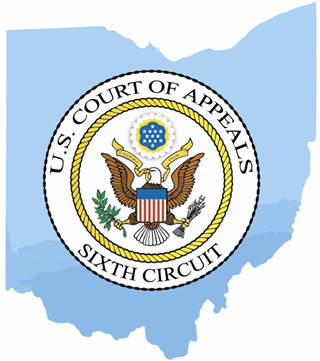September 25, 2015 •
United States Sixth Circuit Upholds District Court Ruling Regarding Contributions to Ohio Judicial Candidates
The Sixth Circuit Court of Appeals denied Ohio Supreme Court candidate Colleen O’Toole’s motion for a preliminary injunction to enjoin enforcement of an Ohio Code of Judicial Conduct Rule 4.4(E). This rule imposes restrictions on when a judicial campaign committee […]
 The Sixth Circuit Court of Appeals denied Ohio Supreme Court candidate Colleen O’Toole’s motion for a preliminary injunction to enjoin enforcement of an Ohio Code of Judicial Conduct Rule 4.4(E). This rule imposes restrictions on when a judicial campaign committee may solicit and receive campaign contributions. Judicial candidate committees for 2016 may begin soliciting and receiving contributions no earlier than 120 days before the first Tuesday after the first Monday in March and may continue to accept contributions until 120 days after the general election.
The Sixth Circuit Court of Appeals denied Ohio Supreme Court candidate Colleen O’Toole’s motion for a preliminary injunction to enjoin enforcement of an Ohio Code of Judicial Conduct Rule 4.4(E). This rule imposes restrictions on when a judicial campaign committee may solicit and receive campaign contributions. Judicial candidate committees for 2016 may begin soliciting and receiving contributions no earlier than 120 days before the first Tuesday after the first Monday in March and may continue to accept contributions until 120 days after the general election.
O’Toole’s campaign committee claims the rule violates the First Amendment by restricting political speech and it violates the Fourteenth Amendment by treating judicial campaign committees differently than other political organizations. The committee failed to demonstrate a likelihood of success on the merits of any claim.
While the contribution restrictions may not be the least restrictive means of maintaining public confidence in judicial integrity, the court found the regulation need only be narrowly tailored, not perfectly tailored. Moreover, perfect tailoring would be impossible given the intangible nature of public confidence.
The court also found it permissible to treat judicial campaign committees differently than political action committees and other political organizations because of the unique nature of judicial elections. Interests in maintaining the integrity, impartiality, and independence of the judiciary are inherently different from those implicated by other political campaigns. More simply, judicial elections may be regulated differently than political elections because the role of judges differs from that of politicians.
State and Federal Communications, Inc. provides research and consulting services for government relations professionals on lobbying laws, procurement lobbying laws, political contribution laws in the United States and Canada. Learn more by visiting stateandfed.com.


